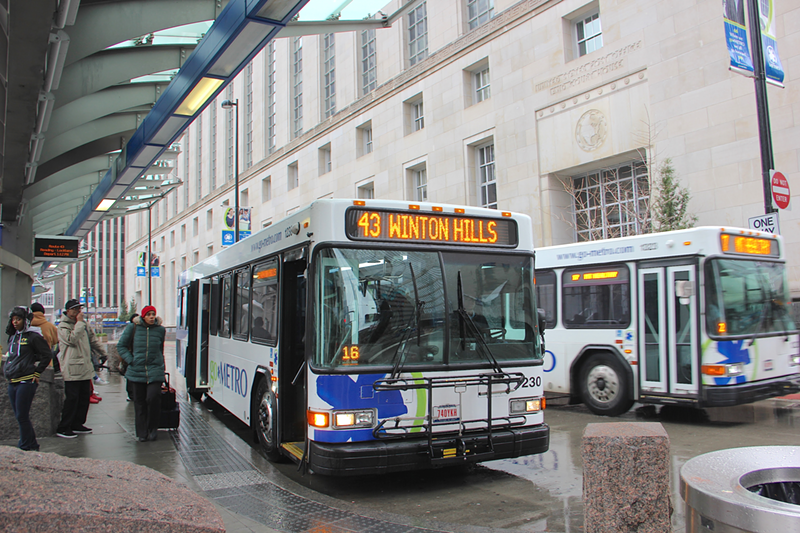
By a vote of 71-27, lawmakers in the Ohio House of Representatives yesterday passed a bill that cuts Ohio Gov. Mike DeWine's proposed gas tax boost almost in half, generating a third less revenue per year.
But the amount of that revenue going to public transit — an area in which Ohio lags nearly every other state in terms of spending per capita — would more than double over DeWine's proposed expenditure.
Lawmakers say they'd like the state Senate and governor to approve the smaller gas tax increase — 10.7 cents above the state's current 28-cent tax — along with a 20-cent hike on diesel fuel, a $200 registration fee for electric cars and a $100 fee for hybrids to eventually raise $872 million a year for maintenance on Ohio's deteriorating roads, bridges and highways. The tax hike would be phased in, rising 5 cents in the first year, starting in October, 3 cents in the second year and 2.7 cents in the final year. The boost on diesel fuel would also be phased in over three years.
It would be Ohio's first gas tax increase since 2005.
Spending priorities would also be shifted under the House legislation, with $100 million a year going to public transportation. DeWine wanted to spend $40 million a year on transit — more than the state's current $33 million a year, but a paltry amount compared to many other states, which spend dollars per capita on transit compared to Ohio's cents per person.
But even the boost by Republicans in the General Assembly falls short of what many transit supporters say is needed. The Central Ohio Transit Authority, for example, has said the state needs to chip in at least $125 million a year to help transit authorities that have for years shouldered the financial responsibility for providing public transportation without much state help.
"The $100 million annual appropriation is the most Ohio has ever invested in public transit," The Southwest Ohio Regional Transit Authority said in a statement March 8. "We thank Speaker Larry Householder, Minority Leader Emilia Sykes and members of the House for recognizing the significant economic impact transit has in our communities getting people to work, school, healthcare and places of worship. While this in no way addresses all the financial challenges facing our region as it relates to transit and transportation, it is an important step in the right direction."
GOP lawmakers' plan would generate less than the $1.2 billion annual receipts DeWine's proposal was projected to generate — an amount DeWine described as the bare minimum needed to pay off hundreds of millions of dollars in debt incurred by the Ohio Department of Transportation over the last few years and pay for routine maintenance and needed new projects.
DeWine said that he was willing to work with lawmakers on the roughly $8 billion, two-year transportation budget, but insisted the state needs all the money it can get for transportation.
"I am very open to dialogue with the legislature on this issue, but I continue to believe that our proposal as introduced provides the money it takes to do the job right," DeWine said. "I plan to work with the Senate to improve the House-passed bill and work toward a final agreement that funds vital maintenance, new construction, promotes jobs, makes our state more competitive and enhances safety for the driving public."
Ohio House Speaker Larry Householder acknowledged the state's roads need help, but said lawmakers want to take a different approach.
“We do know that there needs to be an investment in Ohio’s highways, bridges and roads," he said yesterday evening. "We’re trying to take care of our immediate needs, look forward to the future and make sure the legislature still has a place for oversight.”
Ohio's transportation budget must be signed into law by March 31. The legislation next goes to the Ohio Senate.





